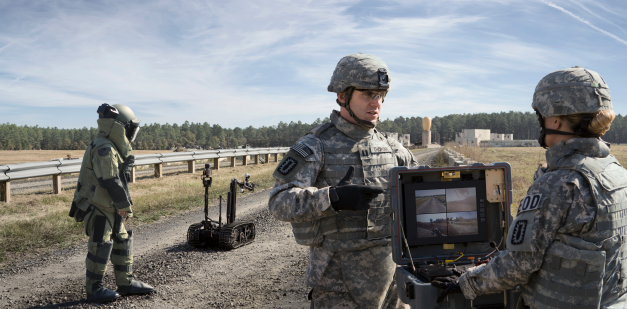
Ordnance Officer (91)
Overview
Ordnance officers are responsible for ensuring that weapons systems, vehicles and equipment are ready and available — and in perfect working order — at all times. They also manage the developing, testing, fielding, handling, storage and disposal of munitions.
Job Duties
- Commanding and controlling operations during land combat
- Coordinate employment of ordnance Soldiers at all levels of command
Requirements
Those who want to serve must first take the Armed Services Vocational Aptitude Battery, a series of tests that helps you better understand your strengths and identify which Army jobs are best for you.
Training
Job training for an ordnance officer requires completion of the Ordnance Officer Basic Course, where you’ll learn leadership skills, tactics, maintenance and operational aspects of weapons and vehicles used in an ordnance platoon. Your training will take place in classrooms and in the field.
Helpful Skills
- Self-discipline
- Physically fit
- Perform under physical and mental pressures
- Make decisions quickly and on your own
Learn more about the ASVAB and see what jobs you could qualify for.
Compensation
Total compensation includes housing, medical, food, special pay, and vacation time. Learn more about total compensation.
Education Benefits
In the Army, qualified students can earn full-tuition, merit-based scholarships, allowances for books and fees, plus an annual stipend for living expenses. Learn more about education benefits.
Future Civilian Careers
While there is no directly related job for an ordnance officer in the civilian world, the leadership skills you acquire as an Army officer will help you in many types of careers. An officer in the Army is most closely related to a key manager in a corporation.



















